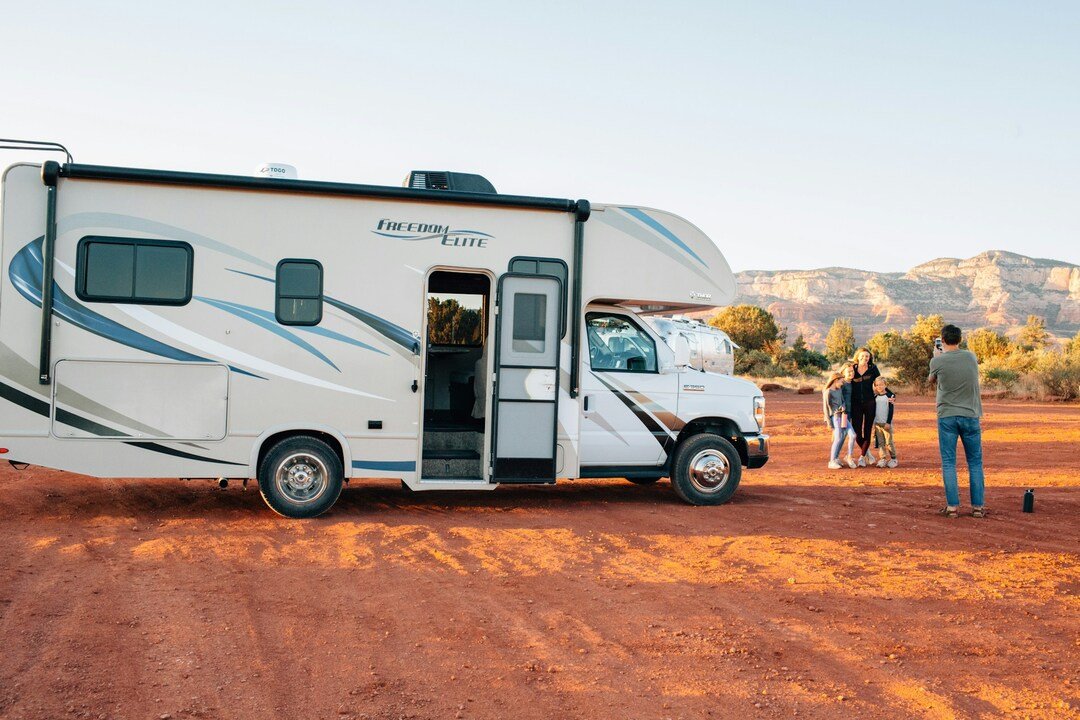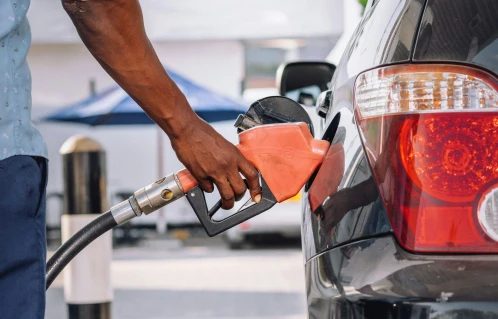When purchasing a trailer, understanding how to read a trailer VIN is crucial for making an informed decision. The VIN provides vital information about the factory where the trailer was produced, its unique specifications, and its history. A vehicle history report free option can help you begin reviewing those records and spotting potential red flags before you commit. Before investing, it’s essential to do your research and ensure the trailer you’re considering aligns with your needs. Whether you're buying new or used, the VIN reveals details that go beyond what’s visible on the surface. Trailers, like any other vehicle, have a record, and the VIN is the key to accessing that information. Note this as an important step in your buying process.
What Is a Trailer VIN?
A Trailer VIN is a unique identifier assigned by the manufacturer to distinguish each trailer from others. Like vehicles, trailers receive this 17-character code that reveals essential details about the trailer’s origins and build. The VIN can help you figure out the trailer’s model, type, and production year. Throughout its life, this number remains with the trailer, whatever happens to change in ownership. You will find the VIN on a metal plate or sticker attached to the trailer most of the time; it's an important issue for verifying the history of the trailer, further inspecting damage on the trailer, and establishing its authenticity. It is not just the VIN that covers important features about the trailer's specifications but also safeguards you against several possible issues like undisclosed repairs.
How Important Is It to Check a Trailer Before Buying?
Checking the VIN number on a trailer before purchasing is crucial to ensuring that you're making a safe and informed decision. The trailer serial number and VIN can identify important details such as the model year, ownership history, and potential issues. Such information includes whether the trailer was salvaged after any accident or if structural defects were noted. It's great for the VIN check on a trailer for stolen and damage cases. Additionally, always check for flood damage, which could compromise the trailer's integrity. Verifying the VIN number on a trailer can save you from costly repairs and potential legal issues down the road.
How to Check If a Trailer Is Not Stolen

Trailer theft is more common than many people realize, with thousands of trailers stolen each year. To ensure a trailer isn’t stolen, it’s essential to access its full history through official databases. Each country maintains registration records and data that can help you verify the trailer's legal status. By using a reliable service, you can quickly determine whether the trailer was reported as missing or involved in criminal activities. A VIN lookup will also show when and where the trailer was manufactured, providing further details. For a more detailed report, including trailers and RVs, you can use an RV VIN lookup tool to gain access to complete ownership and theft history.
Additionally, it’s wise to cross-check the trailer’s VIN with national and local databases, as some thefts may only be reported at the regional level. Confirming the trailer's registration records can also reveal discrepancies in ownership history, which could indicate fraudulent activity.
Where to Find Your Trailer VIN Code
If you're wondering how to find a VIN number on a trailer, there are several key locations to check. The VIN is typically located in the following places:
- On a metal plate or sticker attached to the trailer’s frame, near the front or tongue area.
- Stamped into the trailer’s frame, often on the driver's side.
- Included in the registration documents, where the VIN is recorded during the initial registration process.
- On the original manufacture label, which may vary depending on the type of trailer.
- Inside the trailer door, often near the hinge, is another common location where manufacturers place the VIN plate.
How To Interpret a Trailer VIN

The first three characters identify the manufacturer, and the following ones provide details necessary as regards the model and specification. A little further on, one will get information regarding the weight of the trailer, axle configuration, and other crucial features. The last digits typically represent the serial number, which is unique to each trailer. Decoding these characters can give you a clear view of the trailer’s origin and essential details.
A Trailer VIN Explained
This table breaks down how each part of the trailer VIN provides specific information about the trailer's origin, build, and identity:
| VIN Position | Explanation |
| 1st Character | Indicates the country of manufacture. For example, trailers made in the USA start with "1" or "4", while those from Canada begin with "2". |
| 2nd Character | Represents the manufacturer and the specific division or brand of the company. This helps identify which company built the trailer. |
| 3rd Character | Refers to the trailer type or manufacturing division within the company, giving more insight into the type of trailer being produced. |
| 4th-8th Characters | These characters provide detailed information about the trailer, including the model, weight, body type, and axle specifications. |
| 9th Character | The check digit is used to verify that the VIN is authentic and not altered. It ensures the VIN's accuracy through a mathematical formula. |
| 10th Character | This character specifies the date of manufacture or the model year of the trailer, which helps determine the age of the trailer. |
| 11th Character | Identifies the factory or assembly plant where the trailer was built, giving insight into its production origin. |
| 12th-17th Characters | The final six characters represent the unique serial number assigned to the trailer, ensuring each trailer is distinctly identifiable. |
How to Get a Trailer History Report?

A history report on a trailer is an important step in the purchase of a used trailer. As with other vehicles, through a history report, you get all-inclusive information about the trailer's past accidents, title issues, and previously sustained damages. You will be able to access its total history using the VIN of the trailer. Most of these reports identify problems that you cannot see during a regular inspection. If you can find a reliable source, then you will be well set to go and make an informed decision and thus ensure the trailer is a sound investment. A careful look at the vehicle history report of the trailer will save you from a lot of legal and safety issues.
Is It Safe to Share the VIN of My Trailer?
How to Get a New VIN Plate for a Trailer
If the VIN sticker on your trailer is missing or damaged, getting a new one is essential to ensure your trailer remains properly identified. First, contact the DMV or other appropriate authority in your area. In some instances, you would be asked to prove ownership, and also some details concerning when and where such a trailer was manufactured. The process of replacing VIN plates for other vehicles is quite similar, and the vinyl for the replacement VIN sticker will also have to be attached in a visible and accessible location on the trailer for legality criteria. Once you determine that a new VIN sticker applies to your situation, here are some steps you should think about:
- Contact the Manufacturer: If your trailer was recently manufactured, the original manufacturer might be able to issue a new VIN plate directly.
- Submit Documentation: Prepare to submit proof of ownership, such as a bill of sale or title, and a photo of the damaged or missing VIN sticker.
- DMV Inspection: In some cases, the DMV may require an inspection of the trailer to verify its identity before issuing a replacement VIN plate.
- Application Fees: Be prepared to pay a fee for the new VIN plate, which varies by state or country.
Summary
In summary, knowing how to check a trailer VIN number is essential for ensuring the trailer’s authenticity and legal status before making a purchase. Each trailer has a unique 17-character VIN made up of both numbers and letters, providing critical information about the trailer’s origin, specifications, and history. By understanding how to interpret these details, you can verify whether the vehicle has been involved in accidents, stolen, or has outstanding title issues. Checking the VIN allows you to make an informed decision, ensuring the trailer you’re considering is safe, legal, and reliable for your needs.
Frequently Asked Questions
No, the VIN itself doesn’t directly provide the trailer’s weight. However, you can use the VIN to access a detailed history or specifications report that may include the trailer’s gross weight rating (GVWR) and other important details. The VIN can be a gateway to finding this information, but the weight is not encoded in the VIN itself.
Trailers in the United States started receiving standardized VIN numbers in 1981, following federal regulations. This requirement ensures that all trailers and vehicles produced from that year onward are identified with a 17-character VIN for tracking purposes.
No, each trailer is assigned a unique 17-character VIN, and no two trailers should ever have the same VIN. This system ensures that each trailer can be individually identified, much like a fingerprint, allowing authorities and buyers to track its history and status.
Yes, by using the VIN, you can access a vehicle history report or database that includes the trailer’s specs, such as its model, manufacturer data, axle configuration, and weight limits.







